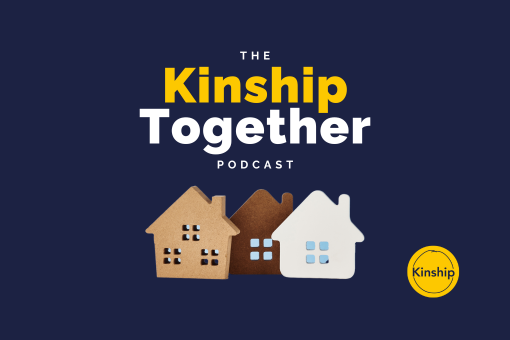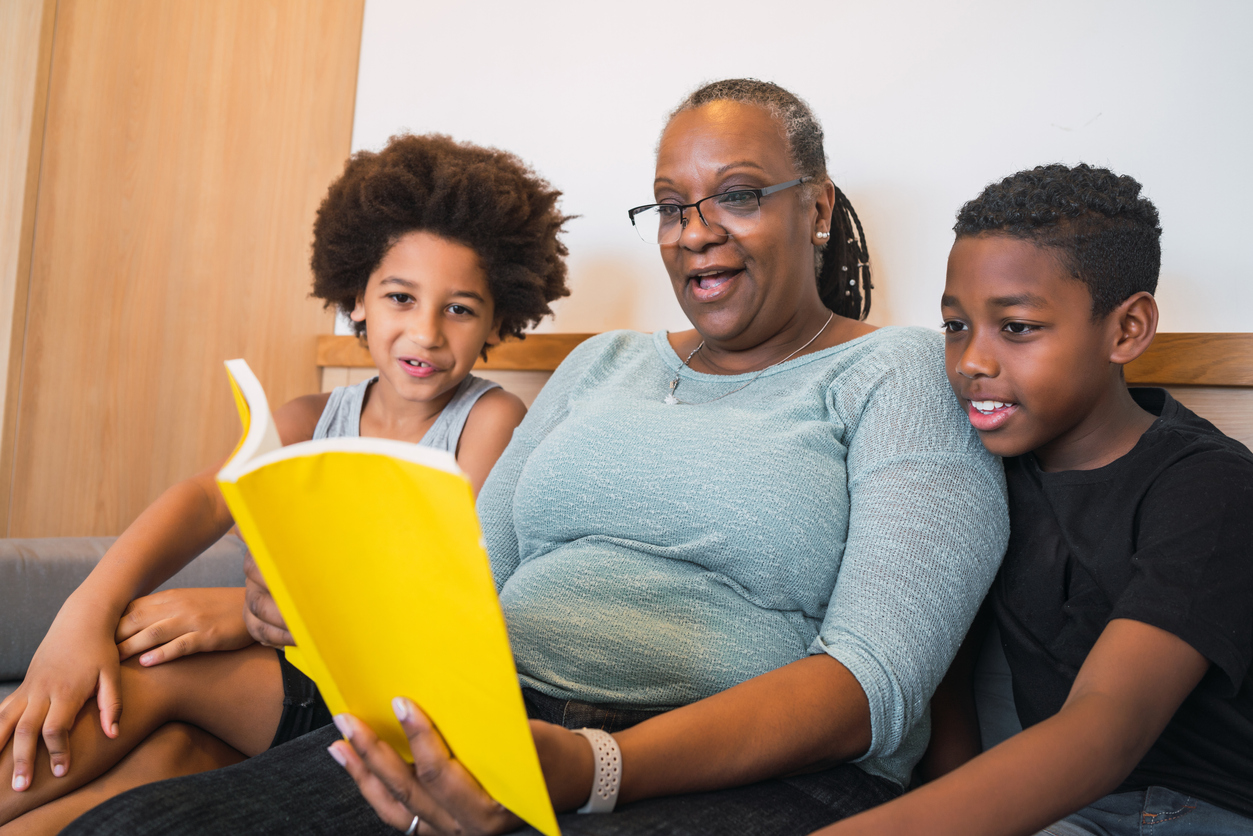
Kinship Together is a new podcast that features real-life stories, experiences and advice from kinship carers.
Kinship carers are family or friends who step up, often during an unexpected crisis, to care for a child when their parents aren’t able to. Kinship care is a commitment. To bring love and hope to a child who has experienced trauma. No matter what.
Get advice and information
Kinship carers are family or friends who step up, often during an unexpected crisis, to care for a child when their parents aren’t able to.
This may be because the parent has died, is unwell, has gone to prison, is experiencing problems with drugs and alcohol, or are neglectful or abusive.
Kinship carers are usually grandparents, aunts or uncles, brothers or sisters, a stepparent, stepbrother or stepsister, or someone who isn’t related but knows the child well.
Whatever their relationship to the child, in that moment a commitment is made. To bring love and hope to a child who has experienced trauma, no matter what.
More than 141,000 children are in kinship care in England and Wales
More than 130,000 children in kinship care in England
More than 11,000 children in kinship care in Wales
We refer to ‘kinship care’ as an umbrella term for anyone who looks after the child of a family member or friend. You’ll also see other organisations refer to kinship care as ‘family and friends’ care. Kinship carers might be referred to as ‘connected carers’, ‘kinship foster carers’ or ‘special guardians’.
As your situation changes over time, you may become a different type of kinship carer. Your rights, responsibilities and the type of support you can access will depend on your specific circumstances.
Below are the types of kinship care and what they mean.
An informal kinship arrangement is where a close relative looks after a child. In some circumstances this could also be a more distant relative or friend. Overall responsibility for the child stays with the parents. This is called ‘parental responsibility’.
In these arrangements, the local authority do not have a major involvement, and there is no court order in place.
Kinship foster care is sometimes called family and friends foster care. It is when a family member or friend is assessed and becomes a child’s approved foster carer. You will receive a regular foster care allowance to help you support the child.
The child is in the care of children’s services, who share parental responsibility with the child’s parents.
Private foster care is when someone who is not a child’s parent or close relative looks after them for 28 days or more.
Arrangements are agreed by you and the parent, but you will have to notify the local authority and undergo a short assessment.
You may be asked to make day-to-day decisions, but the parents keep full responsibility for the child.
A special guardianship order (SGO) is a legal order given by a family court.
When you become a special guardian, the child will live with you until they are 18 years old.
You share parental responsibility with the child’s parents but can make nearly all major decisions about the child without the parents’ involvement.
A child arrangements order (CAO) is a legal order given by a family court, and usually lasts until the child is 18 years old.
You share parental responsibility with the child’s parents but can make day-to-day decisions without parental involvement. For any major decisions about the child, you must involve the parents.
A testamentary guardian is someone who has been appointed, formally in writing, by a parent or special guardian. If there is no one else with parental responsibility, the testamentary guardian gains parental responsibility upon the parent or special guardian’s death.
If you are a testamentary guardian, you might want to seek legal advice to ensure you understand your rights and options.
Adoption is not appropriate or recommended for most kinship carers. When you adopt a child, the link between the child and their parents is legally and permanently broken. It changes family arrangements forever. As an adopter, you gain complete parental responsibility for the child.
Sign up for emails to keep up to date with the information that’s important to you, from support and advice for kinship carers, to our latest news, events and campaigns.